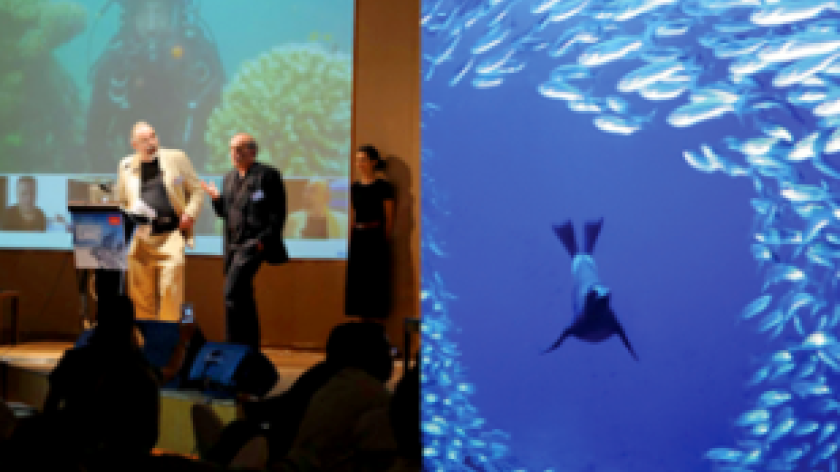

The occasion is the second World Ocean Summit, organized by the Economist and National Geographic, which opened yesterda with a high level plenary session. The two-day conference is focused on how to reconcile economic development and ocean conservation. Conferees aim to explore new ideas about how to sustainably manage the growing human impact on the world’s oceans, and how to return the ocean to health.
The crisis in global ocean health is now well-documented, from the deterioration of coral reefs to the collapse of fisheries. The challenge lies in balancing the goals of economic development and conservation among a multitude of public and private interests. Sustainable growth must address a range of aims, including preserving biodiversity, ensuring equity in access, and creating sustainable economic profit. This requires realigning the diverse interests of government, business, and civil society.
The two days of the Summit is focusing on two aspects:
- Refining the challenge: what are the barriers, why is progress slow, what are the factor inhibiting greater action.
- Building a solution: where to start, what we have learned from past initiatives including on aquaculture sustainable development, on tackling overfishing, on ocean governance.
In addition to attending the plenary sessions, the GEF is also part of the working group on “Overfishing: Accelerating solutions.” The GEF Agencies, including the World Bank, United Nation Environment Programme, Conservation International and World Wildlife Fund-US, are also participating in the Summit.
For more information:
- Ocean Summit Discussion Online : #OCEANSUMMIT
- http://www.economistinsights.com/sustainability-resources/event/world-ocean-summit-2014